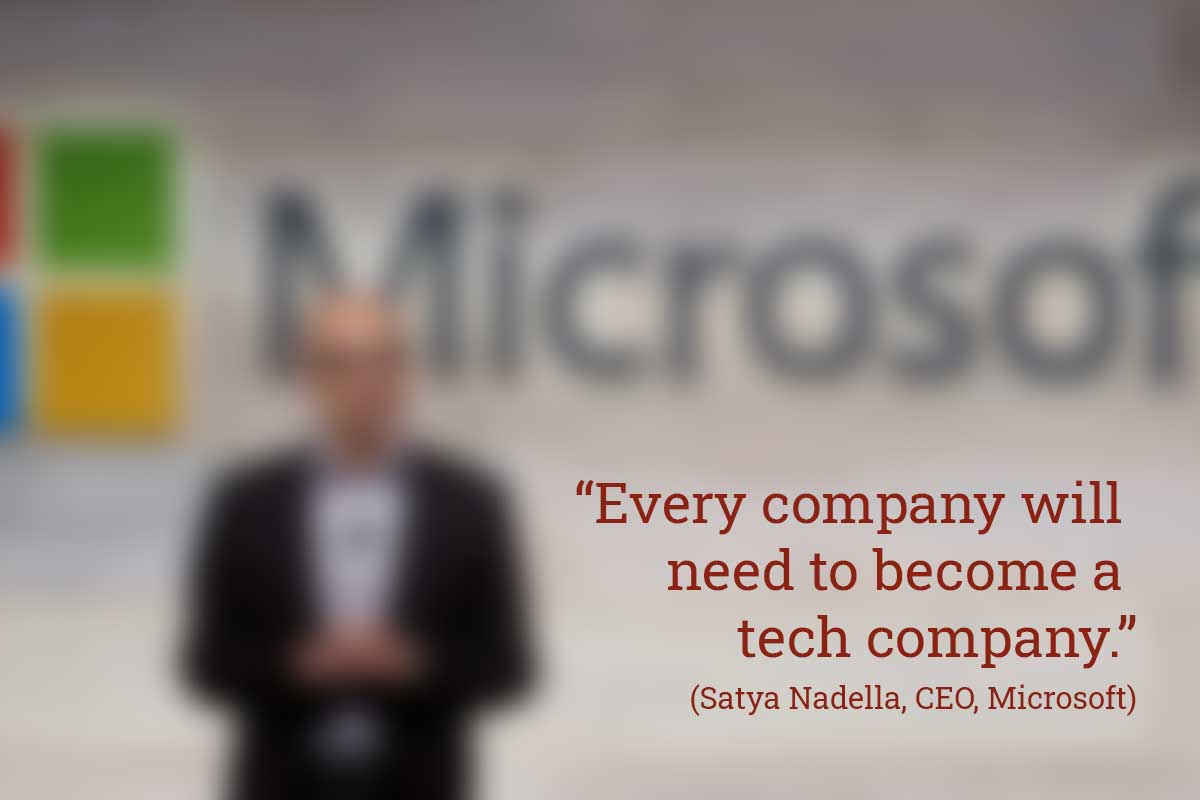
Whois Demystified: Safeguarding Against Cyber Threats
If you’ve read our previous post titled The Power of Whois Lookup, Reverse Whois Lookup, and Historical Whois Lookup in Bolstering Cyber-security Domain Ownership Information, then you’ll already be familiar with Whois and its powerful siblings. If you’re a big JRR Tolkien fan, then this trilogy is akin to the 3 Elven rings in the Lord of the Rings: a power for good; ultra-powerful individually but when brought together… they’re… okay, okay, enough of the fantasy stuff. We’re here for facts, objectiveness, and reality, per-lease.
Suffice it to say that all 3 lookup tools are immensely powerful on their own, but combined, they bestow Palantir-like… Right, time to stop this Tolkien-analogy, it can be Hobbit, sorry, habit-forming.
Of course, if you’re not a Tolkien fan, then the above’s either going to be meaningless to you (or you’ve already hit the back button). Whatever the case, apologies for the former, and I guess you won’t be reading this if you’re among the latter. For those that are still here, though the above might not resonate (and sincere apologies if it didn't), the above is actually not a bad analogy.
Where domain lookup is concerned, the only thing these 3 lookup tools don’t let you see is into the future (but that’s where your security analysts and cyber-security professionals, continued monitoring, evaluation, threat intelligence and risk assessments as part of your risk assessment framework comes in).

However, to get back/remain on track, the focus in this post is on Whois Lookup and that’s where our journey begins. (Reverse Whois Lookup and Historical Whois Lookup will get their own posts.)
So, what exactly is Whois Lookup?
What IS Whois Lookup?
A Whois Lookup is a search term that is used to provide information about a domain name. This information falls into 4 main categories:
- Domain Ownership Information — the domain name, the web address, nameserver information, the registrant (name, organization, address, etc.), details of the administrative contact, technical contact, etc. Note: all information provided is subject to compliance and other relevant regulations such as GDPR.
- Registration and expiration dates — including the date the domain was initially registered, when it was last updated, and the date the current registration will end.
- Name Server Information (NS) information — the domain's nameserver information. For complete DNS information such as IP addresses, Nameservers (NS), Mail Exchange (MX) records, Canonical Name (CNAME) records, Time-To-Live (TTL), and Service (SRV) records, you can use our DNS Lookup API.
- Registrar information — including the domain registrar’s name and contact details, their Internet Assigned Number Authority (IANA) name, WHOIS server, website URL, phone numbers, abuse contact, etc.
Why do you need WHOIS Lookup?
In 2021, Microsoft CEO, Satya Nadella, said every company will need to become a tech company. Naturally, at the very least, that means having their own domain name, website, and everything else associated with those. (Though we prefer to take the middle ground, we know some who’re adamant that you’re not even a serious company if you don’t have your own website.)

Unfortunately, if you’re on the internet, then you, your secure networks, and your sensitive data are vulnerable to a multitude of cyber threats/cyberattacks. The threat landscape and the number and types of cyberattack techniques is increasing and regardless of whether you're at risk from supply chain attacks, distributed denial of service (DDOS), or other malicious attacks, you need effective and proven cyber-security measures and security programs in place. (And yes, this is going to necessitate having skilled and experience cyber-security professionals .)
For those organizations new to the game, cyber-security threats, compliance, and brand protection are just 3 of the main concerns facing companies today (we list 6 more below). For those more established, those with strong brands, arguably, there are not only a greater number of considerations but also far more is at stake: your data assets need protecting as reputations once lost are hard to reclaim, and once you've been hacked, it's nigh on impossible to rebuild trust in the same manner and to the same level as before.“…organizations need to plan according to the mindset of, “It’s going to happen to us; it’s just a matter of when.”*
At the very least, to effectively manage your risk, it pays to be aware of both threats and challenges and, to maximize effectiveness, to understand how Whois Lookup can help.
Threats and challenges and how Whois Lookup can help.
Below are 9 of the more common known threats and challenges that organizations face today. Understanding these will not only help you mitigate your cyber risk but may also provide additional guidance around improving operational security/security operations in general. As part of this, we also cover how accurate, up-to-date, and timely Whois Lookups can help.
Cyber-security
Protecting against cyber threats and maintaining network security for all your online environments, critical infrastructure, and sensitive information is critical--you cannot afford data breaches! To do this, in addition to solid and proven security solutions, your organization also needs accurate and up-to-date data to identify and respond to potential threats, vulnerabilities, and cyber attacks and attempts to steal data of any kind.
WHOIS Lookups allows you to do just that by investigating domain ownership, detecting potentially malicious or fraudulent domains, and identifying and mitigating cybersecurity threats such as phishing attacks, malicious software/malware distribution, network attacks, and domain spoofing. (Phishing attacks against employee computer systems are one common method cyber criminals use to gain access and steal sensitive data -- Dancing Pigs anyone?)

Brand Protection
Safeguarding your brand reputation and intellectual property is paramount. The impact and speed at which your organization must react does vary according to industry--retail, fashion, and entertainment are among the industries that face significant brand protection challenges, such as brand abuse and counterfeit products--but few companies can afford to rely on slow or inaccurate data (or any ineffective security procedures whatever the type). The security risks are just too great.
Whois Lookup counters this by rapidly identifying cyber threat instances such as domain squatting, trademark infringement, copyright, and unauthorized domain registration. In doing so, this makes monitoring and protecting your brand online easy, boosts your security controls, and helps minimize and mitigate cyber risk.
Intellectual Property
Identifying unauthorized intellectual property usage across your domain names is essential in upholding proprietary information, trademarks, copyrights, company assets, and other Intellectual Property. Typical threats from malicious actors include cybersquatting, domain infringement, counterfeit products, phishing, and overall brand abuse.
WHOIS lookup provides valuable insights and tools to protect your IP including allowing you to monitor domain registrations to identify instances of cybersquatting, as well as proactively helping you to take prompt legal action or file domain disputes against any infringing domain. For example, having current domain data helps with any cease-and-desist actions as well as supporting any legal mechanisms for IP domain disputes, such as the Uniform Domain-Name Dispute-Resolution Policy (UDRP).
Legal and Compliance
Adhering to legal or regulatory requirements requires organizations to maintain accurate and up-to-date records of domain registrations for compliance purposes. Common concerns include non-compliance with data regulations, regulatory reporting failures, trademark infringement lawsuits, and data privacy issues. All of which pose varying levels of compliance headaches to organizations.
Whois lookups help you avoid this by providing vital, accurate, and up-to-date data to ensure you meet requirements, can avoid any risk of legal consequences, and can rapidly respond to, and mitigate, and legal disputes. Specifically, by providing accurate registrant data, current domain name information, trademark monitoring and protection (via API), and complying with privacy regulations.
Asset Valuations
Obtaining accurate value assessments and history of online assets is essential when mergers, acquisitions, or investments. Inaccurate data could lead to misinformed business decisions (overvaluing or undervaluing a businesses’ digital assets), increasing the risk of financial loss and becoming embroiled in legal complications.
Whois data can easily help in various ways. Including domain portfolio management, better insights into investments and mergers, more accurate assessments of your own online presence, proactively and better identify risks and opportunities.
Business Partnerships
Verifying the legitimacy and trustworthiness of all potential partners prior to entering a business relationship is vital. As part of this, you will need to perform your own due diligence, which includes knowing the full details of their domain ownership and registration, ensuring their values and standards align with yours, and making sure there aren’t any skeletons in their cupboard.
Whois can help in several ways, including verifying the legitimacy and ownership of the domains associated with prospective partners, providing a holistic view of their online activities, and understanding what risks and issues exist to make educated and informed business decisions.
Market Research
Investigating industry trends and competitors is invaluable for effective market analysis, emerging trends, and strategic planning. All of which can lead to missed collaboration opportunities, strategic partnerships, and even cause you to lag behind your competitors.
Whois data provides valuable data on domain registrations, aiding you in gaining insights into your competitor’s online strategies and partnerships, as well as their overall digital presence. In addition, analyzing this research will help you uncover any emerging trends, stay current with industry developments, and deliver better, current, and more up-to-date information to capitalize when the opportunity arises.
Reputation Management
Such challenges include brand abuse, counterfeit sales, and domain squatting from criminal groups. Brand abuse includes unauthorized use of trademarks and can easily harm your brand image and instil confusion in both customers and stakeholders. Equally, counterfeit product sales and domain squatting also lead to confusion but can also impact your authenticity, positioning, and lead to an erosion in customer trust.
Whois lookup helps you counter these issues by providing clear insights into domain registrations, enabling you to proactively protect your brand, take rapid legal action against any counterfeit sales, and uphold both reputation and customer trust by preventing domain squatting.
Data quality
Inaccurate customer information, slow data retrieval, and regulatory compliance issues are a daily challenge for most organizations. Inaccuracies in customer data impede communication and can result in poor service and a bad experience, slow retrieval hinders timely decisions and can escalate into unnecessary and unwanted operational challenges, and regulatory compliance issues can lead to legal consequences, fines, and damage to your organization’s reputation.

These can easily be avoided with accurate domain registrant information provided by our Whois Lookup. In doing so, you can enhance not only your overall data precision, but can also accelerate retrieval processes, and ensure you remain compliant with regulatory standards at all times.
These are some of the more common threats and challenges that Whois Lookup can assist with. However, though Whois Lookup can be performed manually on an individual lookup basis, savvy organizations know that to remain competitive, this needs to be automated (via API-Application Programming Interface).
Whois Freaks offers such API capability and it’s not only easy to setup and use, but it offers significant benefits and advantages.
The benefits and advantages of the WHOIS Lookup API
Connecting to the WhoisFreaks lookup tool via API offers several benefits and advantages including:
- Alerts and Notifications: With API integration, you can set up automatic alerts and notifications for specific domain events, such as domain expiration, changes in ownership, or potential trademark infringements. This allows you to proactively manage domain-related events and to take swift, strategic actions to prevent disruptions, safeguard your IP, and with minimal disruptions.
- Automation: Instead of manually performing lookups, you can use your system to request and receive Whois data programmatically. This not only saves you time but also reduces the risk of human error, minimizes risk, improves data accuracy, and increases your overall efficiency.
- Compliance and Reporting: APIs can assist you in meeting your compliance requirements by allowing automated data retrieval and reporting. This ensures you can efficiently gather and manage the necessary information to meet any regulatory requirements, but also by streamlining the process saves your time, resources and reduces the risk of manual data handling errors.
- Consolidated Data: API integration can provide consolidated data from multiple sources and data providers, giving you a comprehensive view of domain ownership and registration information. This holistic overview delivers a unified dataset, eliminates and silos, and provides a more complete understanding of the online landscape. Together, these equip you to conduct thorough analyses and make more informed decisions.
- Cost-Efficiency: API integration can be cost-effective as it reduces the need for manual labor (and associated costs). In addition, automation also minimizes the risk of errors and inaccuracies that can result from manual data entry, thereby reducing correction time and improving overall operational efficiency.
- Cross-Platform Compatibility: Who doesn’t want flexibility and accessibility? This is one of the beauties of API integration, as they can be used across various platforms and technologies. Whether you’re using a web application, a mobile app, or a backend server, consistent access to Whois data is at your fingertips.
- Customization: APIs provide flexibility in how organizations use and present WHOIS data. They can customize the integration to fit their specific needs, whether it's for internal reporting, compliance, or customer-facing applications. This functionality and adaptability boost internal reporting, compliance, and customer-facing apps by allowing you to mold them to your own workflows and objectives.
- Data Enrichment: Whois allows you to augment and enrich your existing data and improve the quality and completeness of your databases. A more comprehensive and accurate understanding of domain ownership can be particularly valuable for your marketing, sales, and customer relationship management teams, enabling them to make more informed decisions, target their audience more effectively, and improve relationships with customers and stakeholders.
- Easy Integration: API integration allows you to seamlessly incorporate Whois data into your existing software, applications, or security systems. Easy integration reduces the need for manual intervention, enhances your organization's overall security posture, and helps streamline operations.
- Enhanced Security: API automation helps strengthen your cyber-security. Now you can continuously monitor domains for suspicious activity, proactively identify and address risks, and by maintaining a more robust security posture, can better safeguard your digital assets, and respond swiftly to evolving cyber threats as they arise.
- Real-time Updates: APIs can provide real-time access to the necessary data and ensure that you have access to the most current domain registration information. This timeliness is crucial for effectively monitoring domain activity and identifying and responding to potential threats promptly.
- Scalability: APIs enable you to scale your Whois data usage. The flexibility and speed at which you will be able to perform many lookups quickly and efficiently is invaluable for those organizations with either an extensive domain portfolio or an equally large number of cyber-security monitoring tasks.

Summary
In summary, Whois Lookup is a powerful tool that provides your organization with many benefits, including the ability to better understand the threats and challenges that are prevalent for any organization connected to the internet. Whois lookup not only provides you accurate and up-to-date domain and domain-related information, but also by connecting via API, allows your organization to switch from reactive to proactive monitoring. In doing so, this provides many benefits including strengthening your security posture, improving operational efficiency, and minimizing risk. And for organizations today, that’s an opportunity too good to miss.